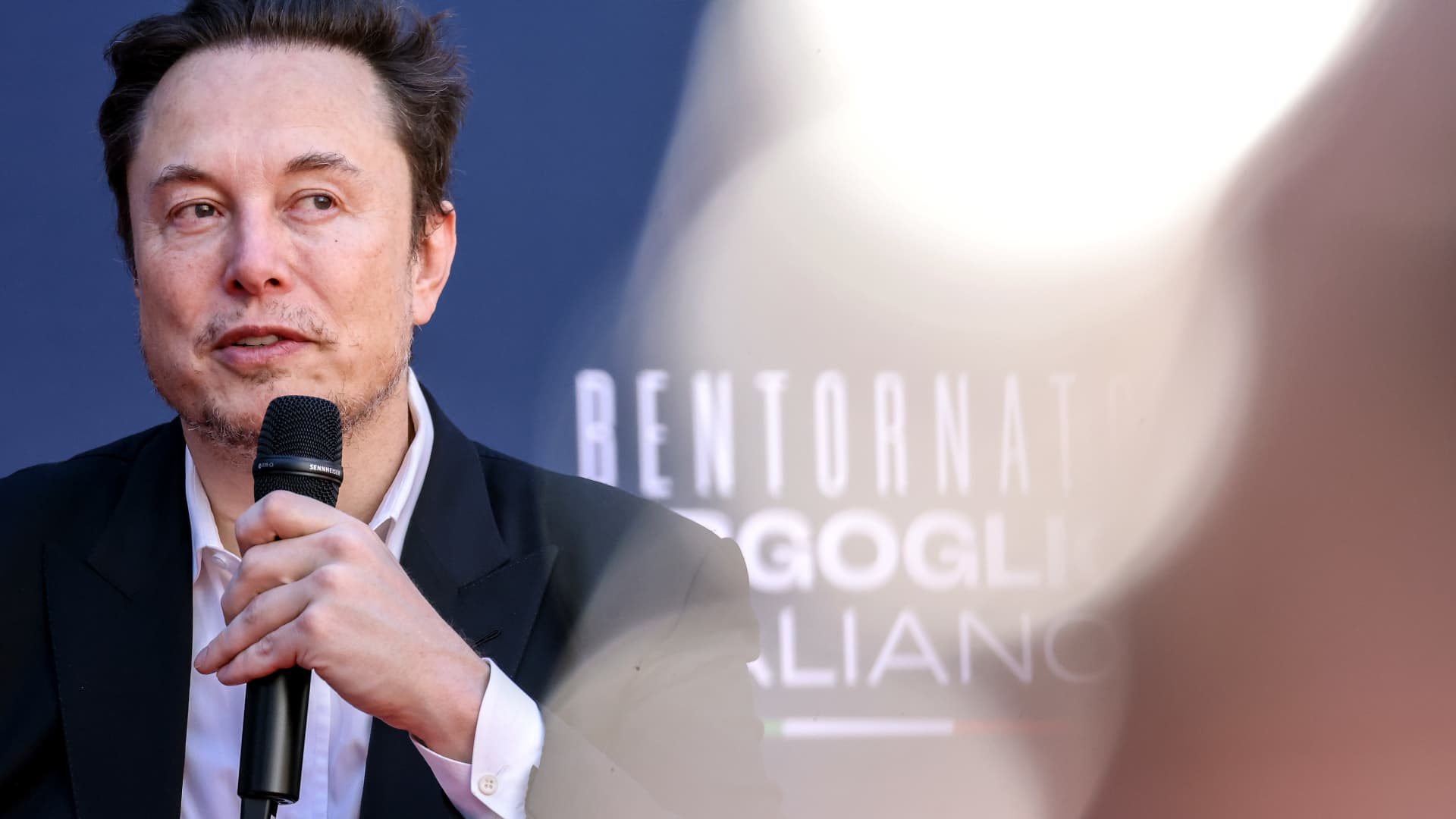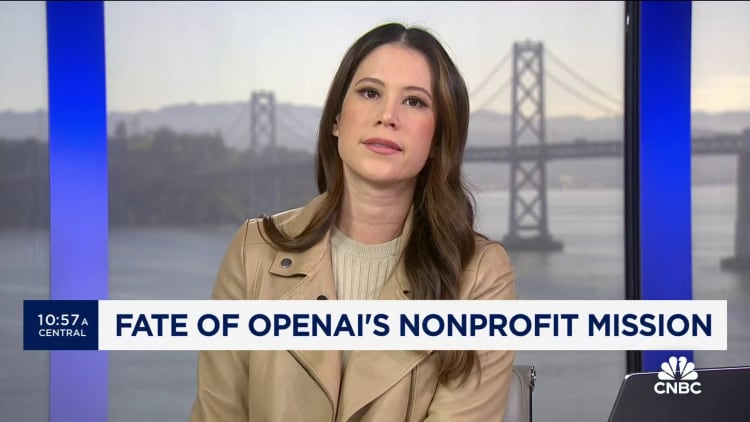
OpenAI denies Musk lawsuit claim that there was founding agreement
Elon Musk, chief executive officer of Tesla Inc., speaks at the Atreju convention in Rome, Italy, on Saturday, Dec. 16, 2023. The annual event, organized by Giorgia Meloni’s Brothers of Italy party, began in 1998 as a convention for right-wing youths and has evolved into a political kermesse, including ministers and members of the opposition.
Alessia Pierdomenico | Bloomberg | Getty Images
OpenAI has challenged a foundational claim Tesla CEO Elon Musk made in the lawsuit he filed against the startup earlier this month.
As it seeks to commercialize its ChatGPT chatbot and underlying artificial intelligence models, OpenAI faces a slew of legal battles, including the one from Musk and cases over copyright infringement from the New York Times and authors. OpenAI reacted to Musk’s complaint last week by deriding it in a memo to employees and releasing emails involving him that go back to its earliest days.
Musk, who claimed breach of contract at the startup that he backed, referred in his complaint earlier this month to a 2015 “founding agreement” with him and two other OpenAI co-founders, Sam Altman and Greg Brockman. The three were agreeing that a new AI lab would be a nonprofit for the benefit of humanity and that it would not keep information private for commercial benefit, Musk said.
He went on to say that in releasing the GPT-4 large language model last year without providing scientific details for public consumption, OpenAI breached that agreement.
“There is no Founding Agreement, or any agreement at all with Musk, as the complaint itself makes clear,” OpenAI said in a document on file with California’s superior court for San Francisco County. “The Founding Agreement is instead a fiction Musk has conjured to lay unearned claim to the fruits of an enterprise he initially supported, then abandoned, then watched succeed without him.”
Musk quoted OpenAI’s 2015 certificate of incorporation with the Delaware secretary of state, asserting that it “memorialized” the founding agreement. But OpenAI responded by saying that Musk’s complaint lacked an actual agreement.
The Microsoft-backed startup called Musk’s claims frivolous. But in a Monday blog post it said it was asking the court to designate the case as complex and obtain dedicated case management for it, because it involves AI and its claims go back almost 10 years.
In his complaint, Musk mentioned that, regarding OpenAI’s 2017 plan to establish a for-profit organization, he told Brockman, Altman and OpenAI co-founder Ilya Sutskever to “[e]ither go do something on your own or continue with OpenAI as a nonprofit.”
OpenAI said in its filing, dated March 6, that if the case were to go to discovery, evidence would show that Musk was on board with the startup gaining for-profit structure.
Musk has his own AI lab called X.AI, which has released a chatbot called Grok that’s available through X, formerly known as Twitter, which Musk acquired in 2022. The startup will release Grok’s code under an open-source license this week, Musk said in an X post on Monday.
OpenAI’s ChatGPT had 100 million weekly users as of November.
“Seeing the remarkable technological advances OpenAI has achieved, Musk now wants that success for himself,” OpenAI said in its filing. “So he brings this action accusing Defendants of breaching a contract that never existed and duties Musk was never owed, demanding relief calculated to benefit a competitor to OpenAI.”
WATCH: Sam Altman rejoins OpenAI board of directors



